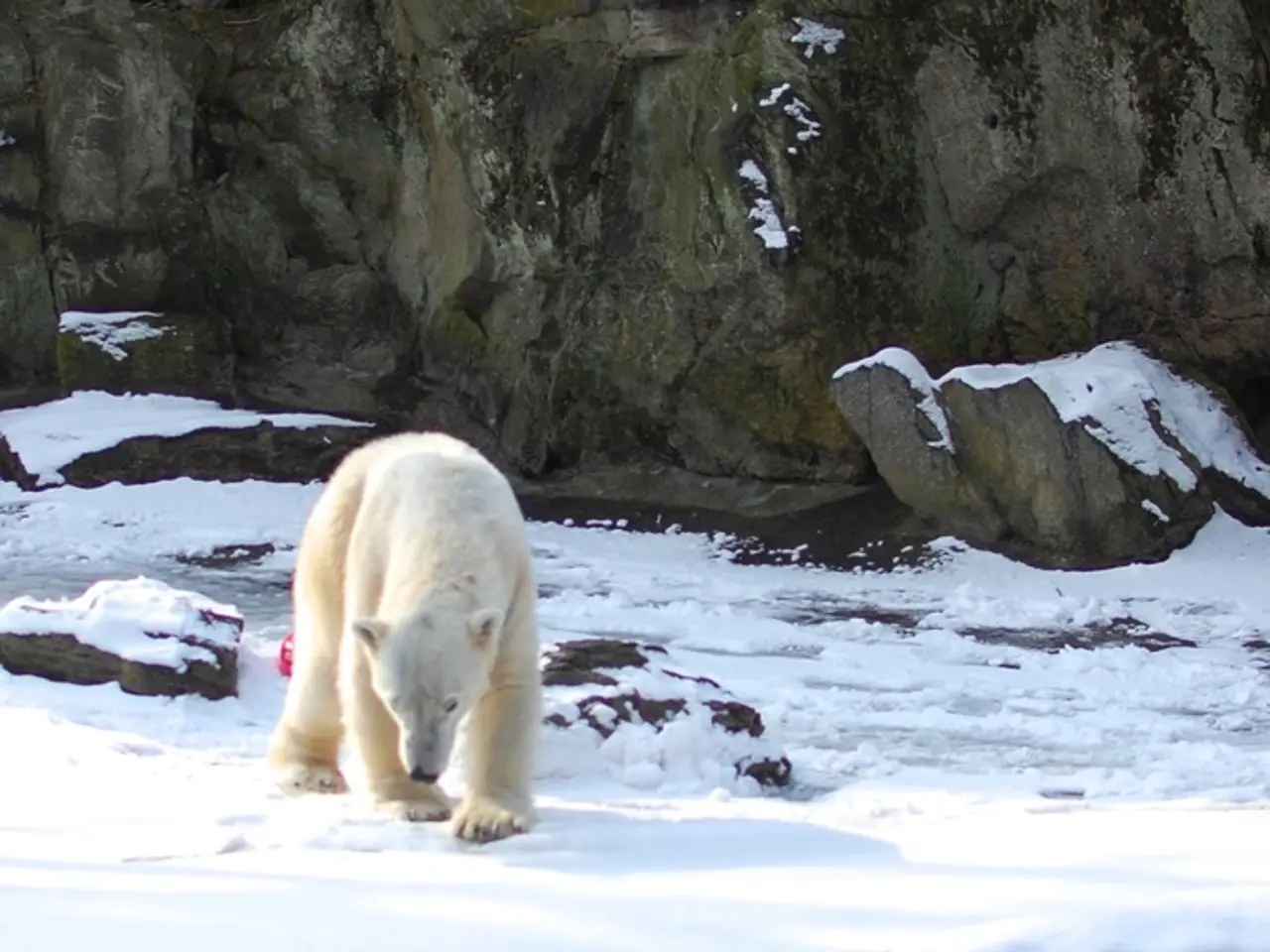Aircraft Grounding Caused by Wildlife: Yamagata Airport's Operations Suspended Due to Running Bear
Unpredictable Encounter at Yamagata Airport
Early this June morning, an unforeseen visitor graced the runway of Yamagata Airport in northern Japan – a black bear! This furry intruder disrupted operations, resulting in the suspension of flights and a standoff with airport officials.
Morning Blunder Propagates Chaos
The bear was spotted by airport staff at around 7 a.m. near the runway, leading to an immediate closure and delays to four flights. Even after the airport reopened later in the morning, the bear popped up again around noon, instigating a second shutdown and the cancellation of 12 more flights.
Frustrating Game of Cat and Mouse
Airport workers initially tried to scare the bear away using a flashing light vehicle. But when the plan failed, they called in reinforcements: hunters and police to trap the beast, with guards posted to prevent the bear from slipping away. The runway remained closed, with scheduled reopening not expected before 8 p.m.
Rising Wildlife Encounters in Japan
This embarrassing incident highlights an unwelcome trend in Japan: encounters with wildlife. Between April 2023 and March 2024, Japan registered 219 bear-related attacks, six of which were fatal. The ongoing shifts in climate and rural depopulation seem to be pushing these bears closer to urban areas and infrastructure.
Implications for Travel and Safety
A single bear managed to ground operations, underscoring the pressure faced by airport safety protocols and emergency preparedness in such situations. To address this challenge, it may be necessary for remote airports like Yamagata to invest in advanced wildlife management systems, including barriers, sensors, and rapid-response teams.
The Aftermath
- Runway Access: Until the bear is safely captured and removed, the runway remains off-limits.
- Rescheduling: Stranded passengers are assisted by local authorities and airlines.
- Preventative Measures: To avoid future incidents, airport management plans to ramp up perimeter monitoring and collaborate with wildlife agencies.
This solitary bear has illuminated the growing intersection between wildlife and infrastructure in rural Japan. As ecosystems and human spaces align, striking a balance between protecting both passengers and wildlife will become increasingly important.
- Travelers might want to consider the potential for unexpected wildlife encounters, such as the one recently at Yamagata Airport in Japan, when planning their trips, given the rising number of such incidents.
- While enjoying the foods and cultural experiences of Japan, it's essential to be mindful of the climate-change impacts and associated shifts in wildlife behavior that could lead to encounters in urban and even airport environments.
- The incident at Yamagata Airport has emphasized the importance of cross-disciplinary collaboration, combining environmental science with airport lifestyle and operational adaptations to minimize environmental and travel disruptions caused by wildlifeentries.
- As the bear incident highlighted, sporting events and other activities could also be affected by unplanned wildlife encroachments, potentially disrupting schedules and requiring flexibility and effective management strategies.




